How to make a headphone amplifier with your own hands?
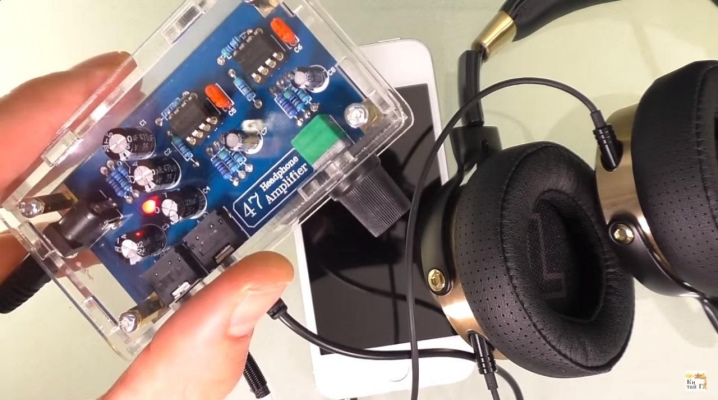
Sometimes the volume of the headphones is not enough. It is worth noting that the headphones themselves are not to blame for this, but the devices with which they are used. They do not always have enough power to provide clear and loud sound. This nuisance can be easily remedied by assembling a dedicated headphone amplifier. Today, there are many schemes proposed by which you can make a good device for improving sound.
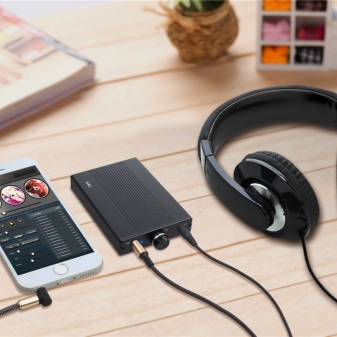
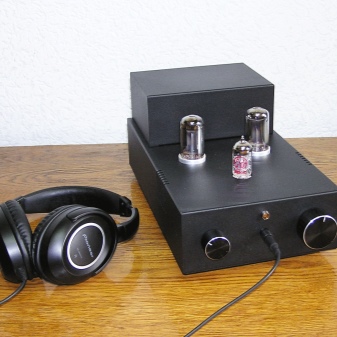
General manufacturing rules
When making devices, there are many important points to consider.
First of all, the amplifier should not be too bulky and take up a lot of space. This is easy to achieve if you make the device on a ready-made printed circuit board.
Circuit options with only wires are inconvenient for constant use and turn out to be excessively large. Such amplifiers are needed if it is necessary to test a specific node.
Making a compact sound amplifier yourself can save a lot. However, it will be useful to take into account its obvious shortcomings. Often, such sound amplifiers do not differ too loudly, and individual parts can also become very hot in them. The last drawback is easy to fix by using a radiator plate in the circuit.
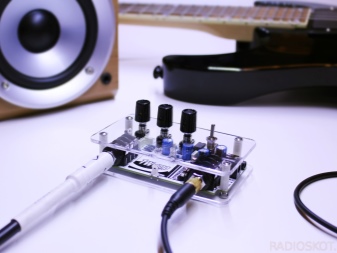
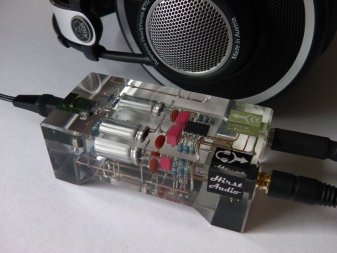
It is important to pay attention to the printed circuit board intended for placing the components. Her condition should be very good. For a reinforcing structure, it is advisable to choose a plastic or metal case. It must be highly reliable. It should be noted that the case does not have to be made by yourself, it would even be better to entrust it to a professional.
When assembling, all elements should be placed exactly in their place according to the scheme prepared in advance.
When soldering wires and accessories it is important that the two elements are not soldered together. The radiator should be installed so that it does not come into contact with individual elements or the body. When fastened, this element can only touch the microcircuit.
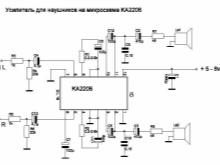
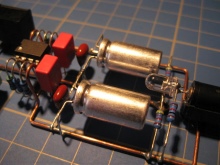
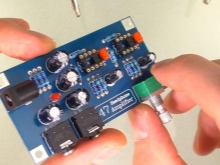
It is desirable that the number of components in the amplifier device be kept to a minimum. This is why it is best to use microcircuits, not transistors. The impedance should be such that the amplifier can handle even high impedance headphone models. At the same time, distortion and noise should be as low as possible.
It is best to opt for simple sound reinforcement circuits. However, you should not use elements that are difficult to find.
Amplifiers, assembled on tubes, have a very stylish look. It is worth noting that they fit both old tape recorders and modern devices. The main disadvantage of such schemes is difficulty in the selection of components.
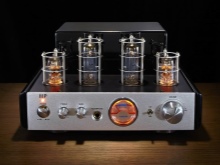
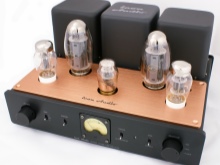
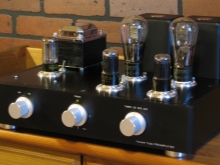
Transistor amplifiers are simple and not multi-component.... For example, germanium transistors can be used for any audio device. However, such amplifiers are substantial. In doing so, it is important to observe the correct setting so that the sound quality is high. The latter can be prevented by using shielded cable or devices that suppress noise and interference during assembly.
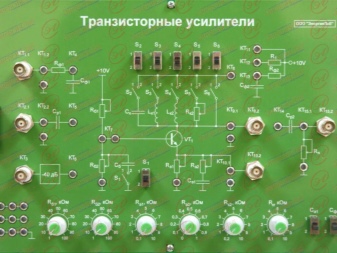
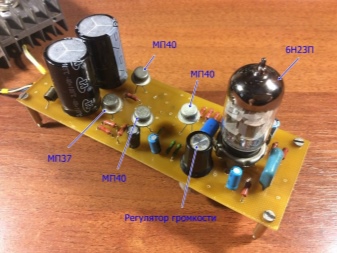
Tools and materials
Before assembling your headphone sound amplifier, you need to prepare all the necessary tools and materials:
chip;
frame;
power supply unit (output voltage 12 V);
plug;
wires;
switch in the form of a button or toggle switch;
radiator for cooling;
capacitors;
side cutters;
screws;
thermal paste;
soldering iron;
rosin;
solder;
solvent;
crosshead screwdriver.
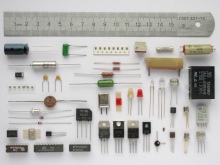
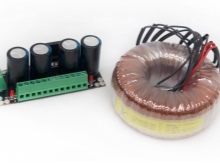
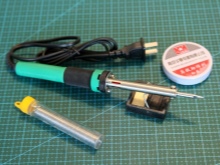
How to make an amplifier?
For headphones, making a sound amplifier with your own hands is not difficult at all, especially if you have a ready-made circuit. It is worth emphasizing that There are various options for amplifiers, among which there are simple options and high quality ones.
Simple
To create a simple amplifier, you need a PCB with plated holes. The amplifier assembly should be started by installing the resistors on the board. Next, you need to insert the capacitors. In this case, the first are ceramic, and only then polar electrolytic. At this stage it is important to carefully observe the rating, as well as the polarity.
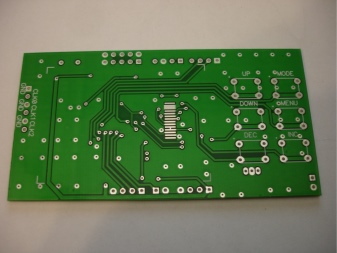
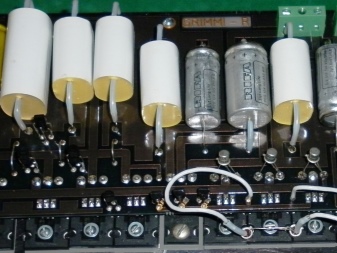
The amplifier indication can be arranged using a red LED. When some of the components are assembled on the board, it is necessary to bend their leads from the back side. This will prevent them from falling out during the soldering process.
After that, you can fix the board in a special fixture that facilitates soldering. Flux should be applied to the contacts, and then the leads should be soldered. Excess lead particles should be removed with side cutters. In this case, it is important not to damage the track on the board.
Now you can install a variable resistor, sockets for microcircuits, input-output jacks, as well as power connections. All new components should also be fluxed and brazed. Any flux remaining on the board must be removed using a brush and solvent.
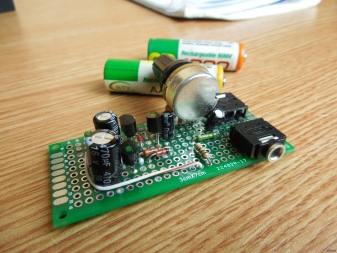
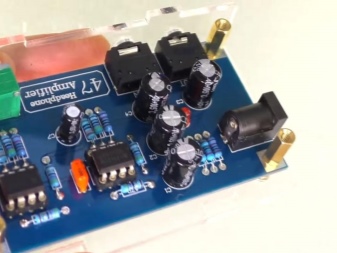
If the creation of an amplifier is carried out on a microcircuit, then it should be inserted into a socket specially designated for this. When all the elements are located on the board, you can assemble the case. To do this, screw the threaded racks on the bottom using a screwdriver. Next, a board with holes for the jacks required for connections is installed on them. At the last stage, we attach the top cover.
In order for a homemade amplifier to work properly, you need to connect the power supply through the plug to the socket.
You can adjust the volume on such a device to amplify the sound by turning the variable resistor knob.
The simplest circuit for a sound reinforcement device involves an IC chip and a pair of capacitors. It should be clarified that one capacitor in it is a decoupling capacitor, and the second is a power supply filter. Such a device does not require configuration - it can work immediately after being turned on. This scheme provides for the possibility of power supply from the car battery.
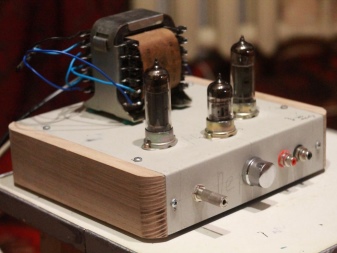
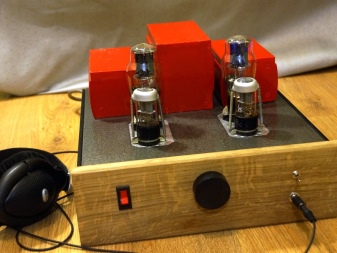
On transistors, you can also assemble the highest quality sound amplifier. In this case, you can use field or bipolar transistors. The former allow you to create a device whose characteristics will be close to tube amplifiers.
High quality
Assembling a Class A sound amplifier is more complex. However, this allows you to create a better quality option that is suitable even for high-impedance devices. This amplifier can be created on the basis of the OPA2134R microcircuit. You should also use variable resistors, non-polar and electrolytic capacitors. In addition, you will need connectors through which headphones and power supplies will be connected.
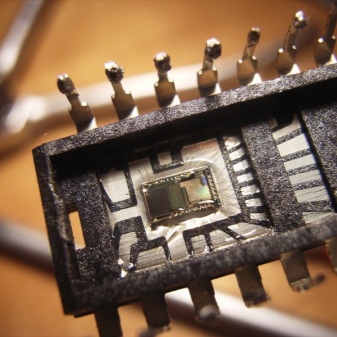
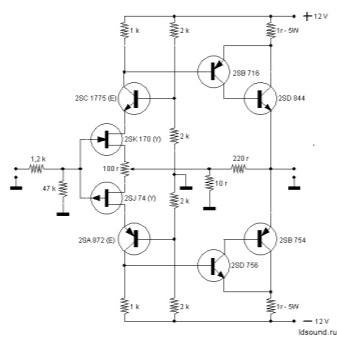
The design of the device can be placed in a ready-made case from under another device. However, you will have to make your own front panel. The amplifier will need a double-sided board. On it, the wiring was made using a technology called laser-ironing.
This method consists in the fact that a layout of the future circuit is created on a computer using a special program.
Then, on a laser printer, the resulting image is printed on a sheet of paper with a glossy surface.After that, it is applied to a heated foil and a hot iron is drawn over the paper. This allows the design to be transferred onto foil. Then you need to place the resulting printed circuit board in a container with warm liquid and remove the paper.
The foil retains the mirror image of the PCB that was created on the computer. For etching the board, a solution of ferric chloride is used, after which it should be rinsed. Next, the necessary holes are applied to it and the side on which the elements will be soldered is tinned.
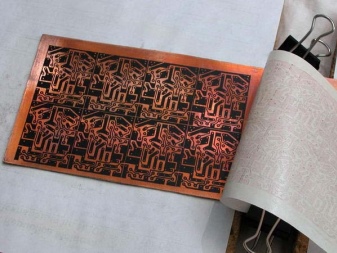
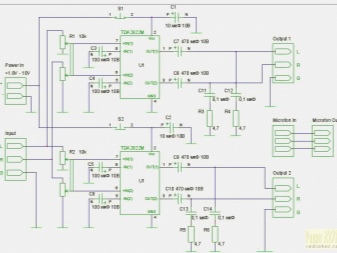
After that, all components can be installed on the board. In this case, it is necessary to start with the power supply circuits. It is advisable to install transistors at the outputs on a radiator... For this, mica gaskets are used, as well as heat-conducting paste.
A four-channel sound amplifier for two pairs of headphones can be made on the basis of two TDA2822M microcircuits, 10 kΩ resistors, 10 μF, 100 μF, 470 μF, 0.1 μF capacitors. You will also need sockets and a power connector.
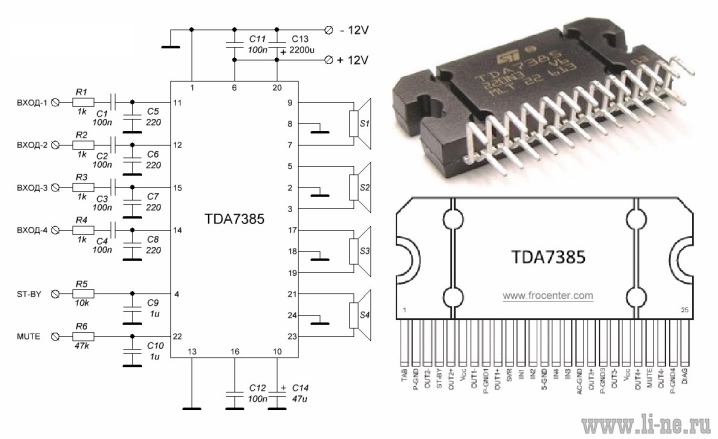
To transfer, you need to print the board and transfer it to the textolite. Next, the board is prepared and assembled as described above. However, when assembling a 4-pair device, you should be especially careful with the soldering of the MicrofonIn and MicrofonOut connectors. The case for such a device is created independently from scrap materials.
Self-made sound amplifiers operate from a power source with a voltage of 12 V or more. Starting from a 1.5V power supply, the MAX4410 can be used to build a portable sound amplifier. Such a device can operate on the most common batteries.
Security measures
When making your own sound amplifiers, you should not only be careful, but also follow the safety rules. For humans, voltages of more than 36 V are dangerous.
It is important to exercise caution and be careful when installing, configuring power supplies, first turning on the received device.
If knowledge is not enough, then it is worth resorting to the assistance of a qualified specialist. It must be present when assembling and starting up the amplifier. Particular care will be needed when working with electrolytic capacitors. It is not necessary to test the power supply without loads.
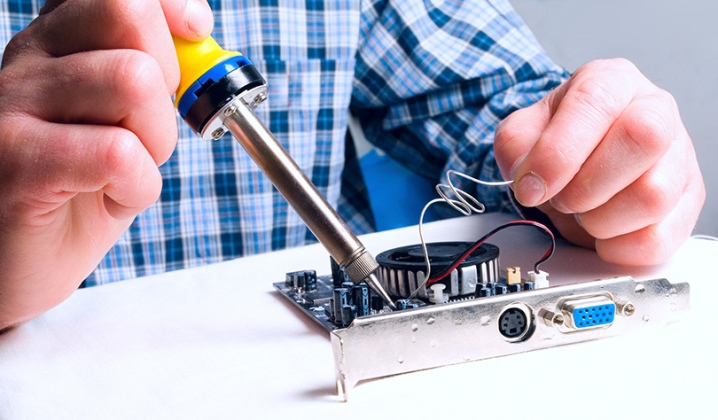
When assembling the amplifier, you have to use a soldering iron to connect the contacts and wires... This tool is dangerous, as high temperatures can cause harm to humans. If you adhere to safety precautions, then all this can be avoided.
First of all, it is important to monitor the sting so that it does not touch electrical wires when it is hot. Otherwise, a short circuit may occur.
Also important before starting work, check the serviceability of the tool, especially its forks... In the process of work, the soldering iron must be placed on a metal or wooden stand.
When soldering, you should constantly ventilate the room so that harmful substances do not accumulate in it. There are various toxins in the fumes of rosin and solder. Only hold the soldering iron by the insulated handle.
For information on how to make a stereo headphone amplifier, see the video.













The comment was sent successfully.